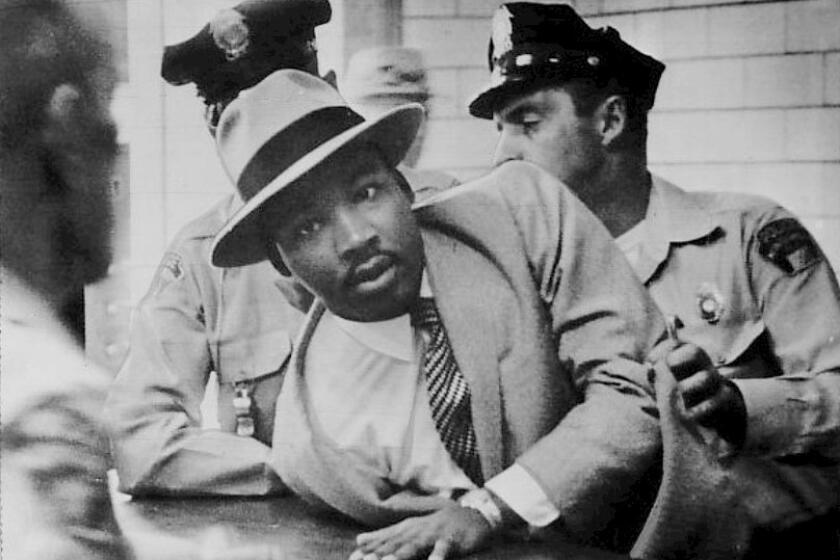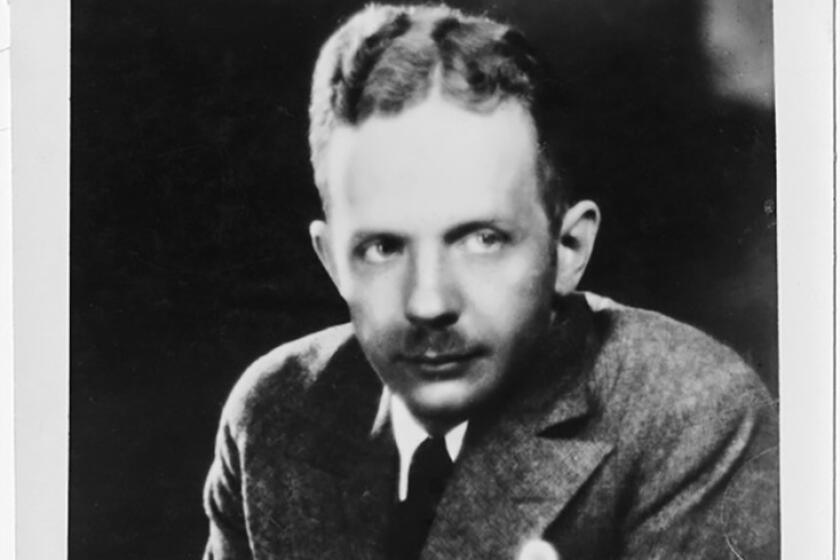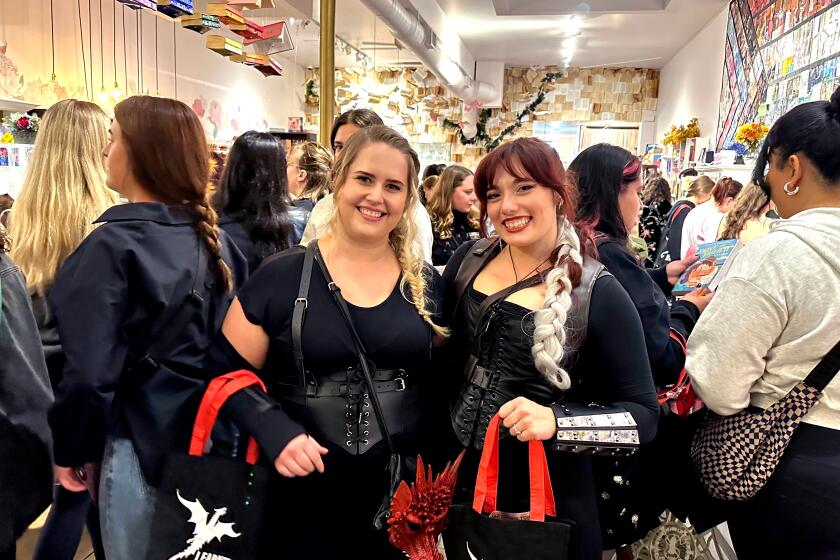How a girl in the old South grew up to be a civil rights historian and a Harvard president
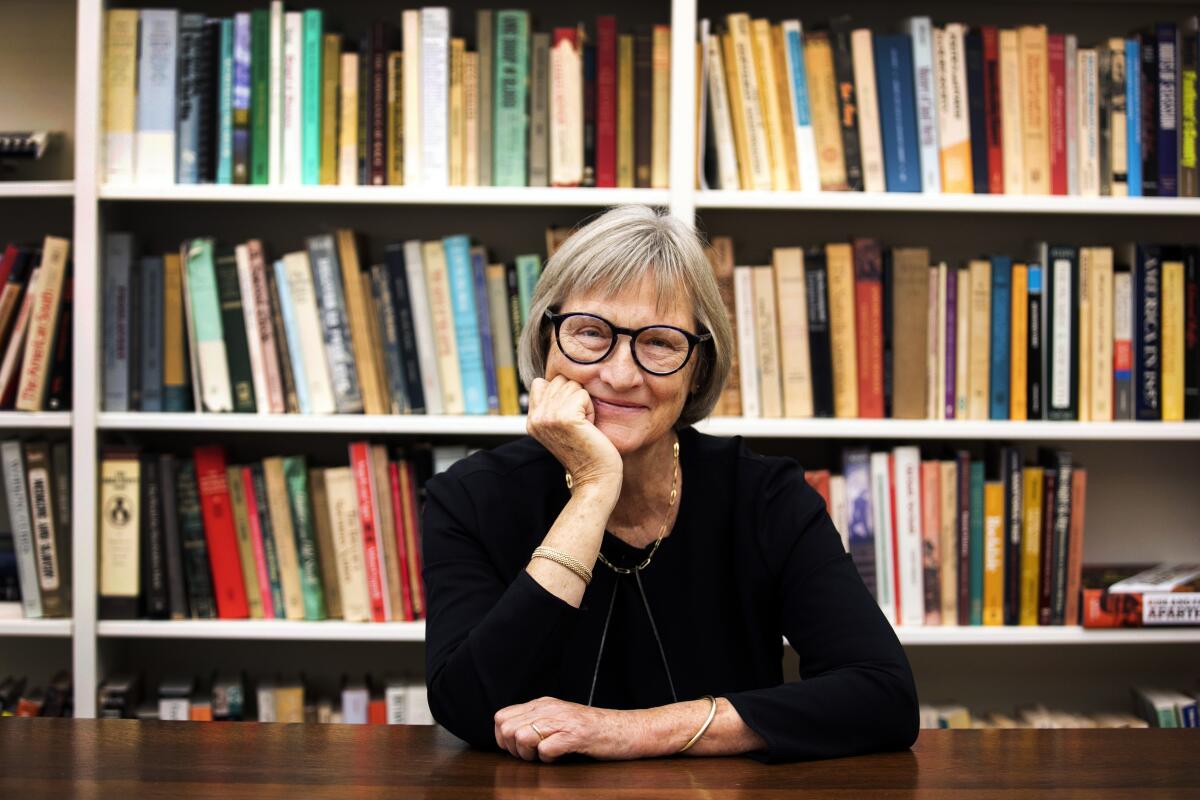
- Share via
Review
Necessary Trouble: Growing Up at Midcentury
By Drew Gilpin Faust
FSG: 320 pages, $30
If you buy books linked on our site, The Times may earn a commission from Bookshop.org, whose fees support independent bookstores.
In her journey as an author and academic, Drew Gilpin Faust has risen to the very top. An award-winning historian, Faust made history herself in 2007 when she became the first woman to serve as president of Harvard University. There’s no better access to the halls of achievement and privilege than that.
Faust’s scholarly field is the splintering impact of slavery and racial injustice on American life; her 1996 book “Mothers of Invention: Women of the Slaveholding South in the American Civil War” won two major history prizes, and 2008’s “This Republic of Suffering,” on how the Civil War shaped America’s relationship with death, was a finalist for both the Pulitzer and the National Book Award. Now she has written a memoir that recalls how her early experiences fired her quest to become a historian.
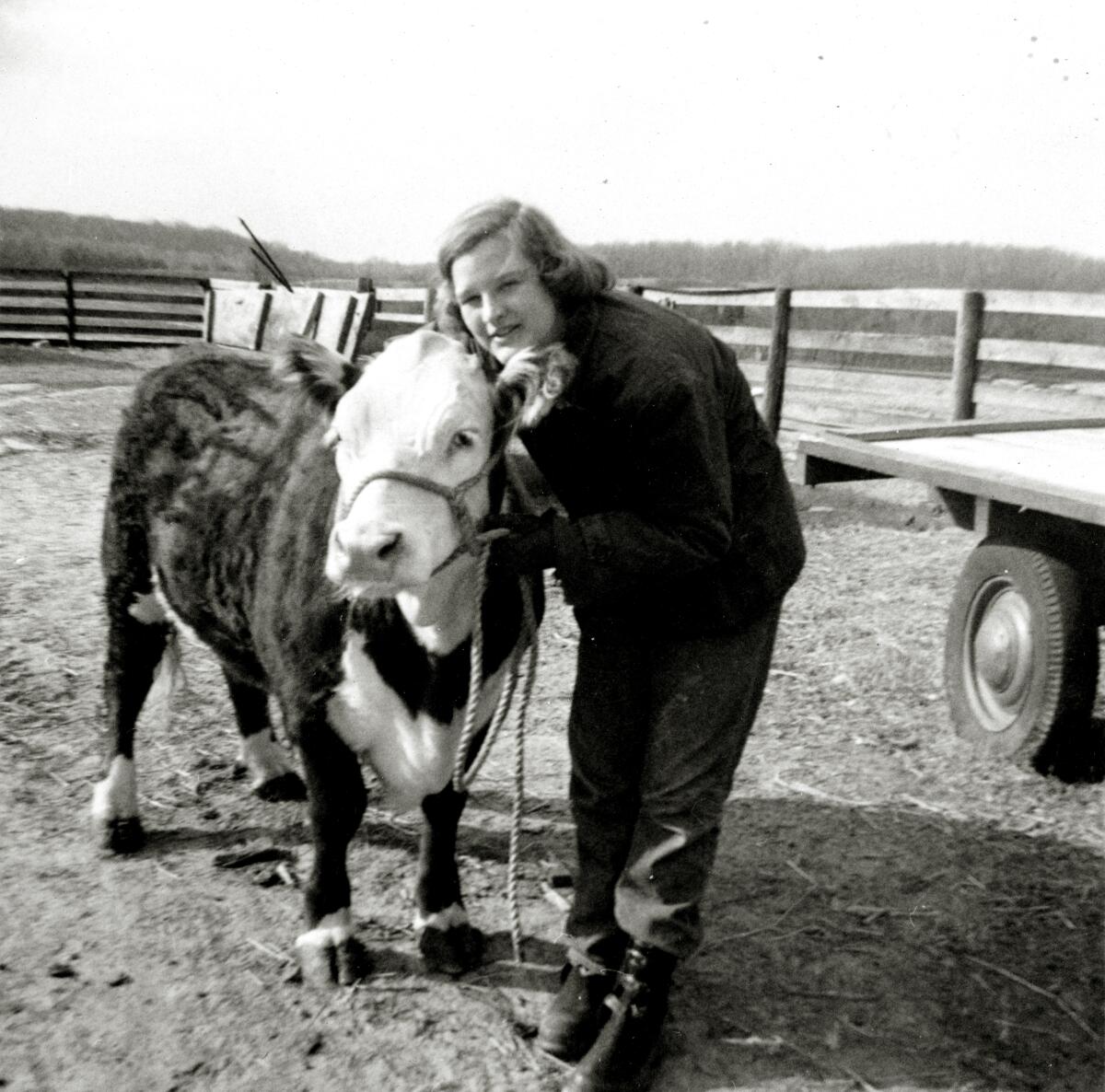
“Necessary Trouble” takes us from Faust’s birth until her graduation from Bryn Mawr, from her 1950s upbringing to her engagement in the tumultuous civil rights campaigns of the 1960s. The story of how a Southern daughter, born into privilege in a segregated society, came to confront the history of a nation prone to racial amnesia is rich with potential, especially as the struggle over how to dismantle structural racism intensifies.
“King: A Life,” by Jonathan Eig, chisels away the myth of the Rev. Martin Luther King Jr. to reveal new layers and debunk falsehoods. Eig talks about how he got there
Part memoir, part political and cultural history, Faust’s is a keenly observed recollection of the forces that shaped her, though it may be frustrating to anyone in search of a deeper psychological portrait of this incredibly accomplished person.
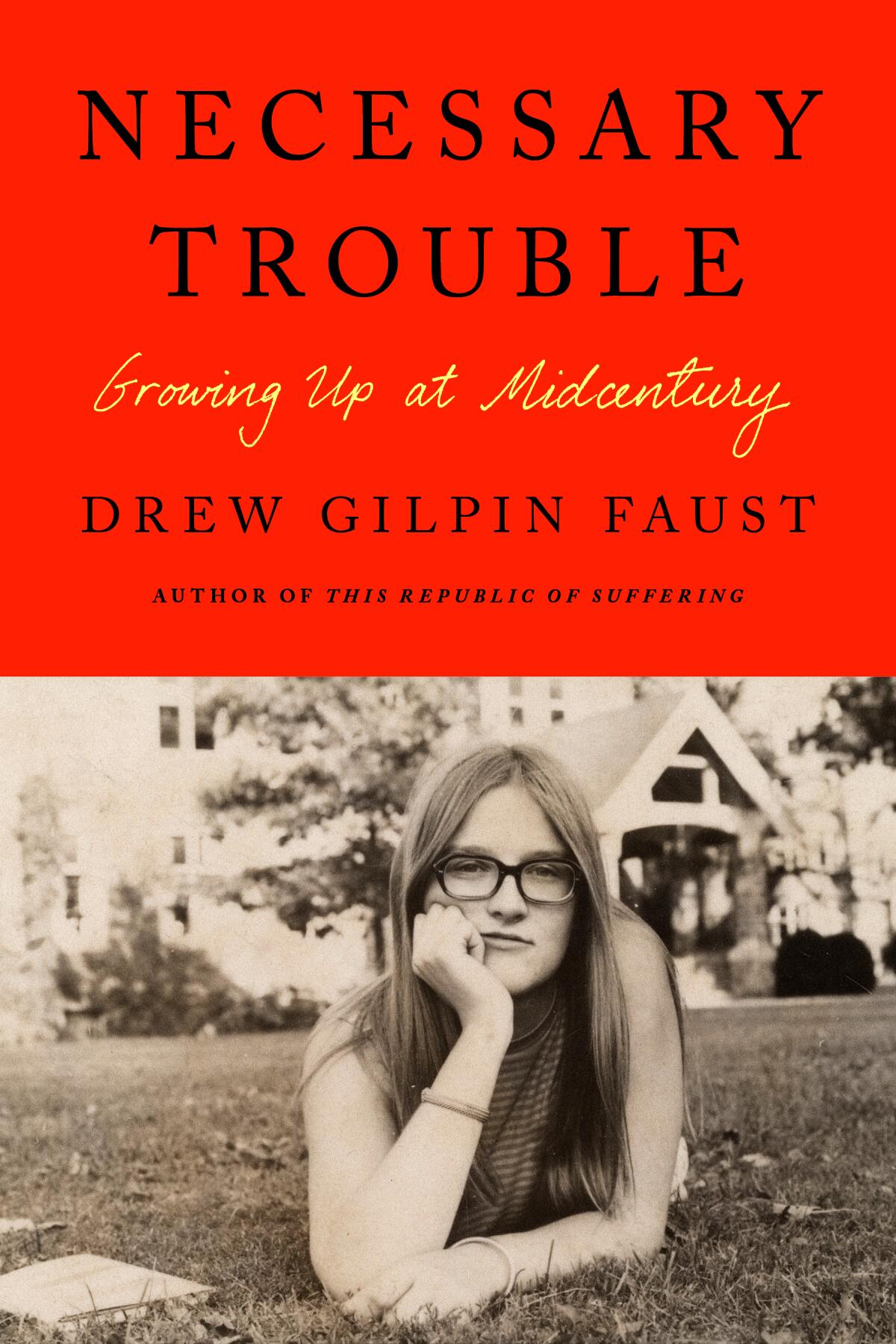
Faust calls the 1950s in Virginia “an era that seems like a foreign country,” a society so segregated that the only Black people Faust knew were farm laborers or domestics. Those workers cleaned her house, cooked her meals and were never addressed by anything but their first names. Most of the residents of the Black community down the road lived without running water. “The white people I grew up with had convinced themselves that Blacks both accepted and deserved their assigned, separate, and subordinated place,” she writes.
Faust’s mother was a wraith of a woman, likely anorexic, who had given up on any identity outside motherhood and who “saw the world as a dangerous place for women, for their bodies and their reputations.” Subsisting on Camels and whiskey, she advised her extremely bright young daughter to submit to the Virginia imperative to become a “lady.”
“I am sure she loved her children,” Faust writes. “But I am less sure she liked or enjoyed us. Especially me.” When Faust was still in college, her mother died after surgery on Christmas Eve. At the funeral reception, “a neighbor approached me and grabbed a handful of my long straight hair — which had served as grounds for many of our mother-daughter fights. ‘You killed her, you know,’ she spat.” Her father, a racer, breeder and broker of horses, remained on the sidelines of the family battles.
At a time when black people are disrupting presidential campaign speeches nationwide in an effort to be recognized as human beings, “Negroland,” the new memoir by Pulitzer Prize-winning cultural critic Margo Jefferson, offers poignant insight into what it means to have been raised in the sheltered Kingdom of Negroes that Jefferson refers to as “the Third Race” — upper-middle-class African Americans who, among a long list of other things, “refused to be held back by the lower element.”
A lot of young women would have wilted from this drought of affection, but Faust only strengthened her convictions. Buttressed by the confidence gained from riding horses, thinking for herself and reading stories of strong women (Nancy Drew, Anne Frank, Scout Finch), Faust concluded that her neighbors’ treatment of Black people was an affront to the Christian ideals she had been raised on. Three days before her 13th birthday, she left for boarding school. In an atmosphere where women were valued and encouraged to realize their potential, she embarked on a lifelong course of learning how to study, how to lead and how to value her own gifts.
At Concord Academy and then Bryn Mawr, Faust got the finest education money could buy a young woman, and at a very young age she was galvanized to write, travel and eventually protest. At age 15, she joined a multiracial group of students who toured Eastern Europe in the depths of the Cold War, witnessing firsthand the consequences of repression.
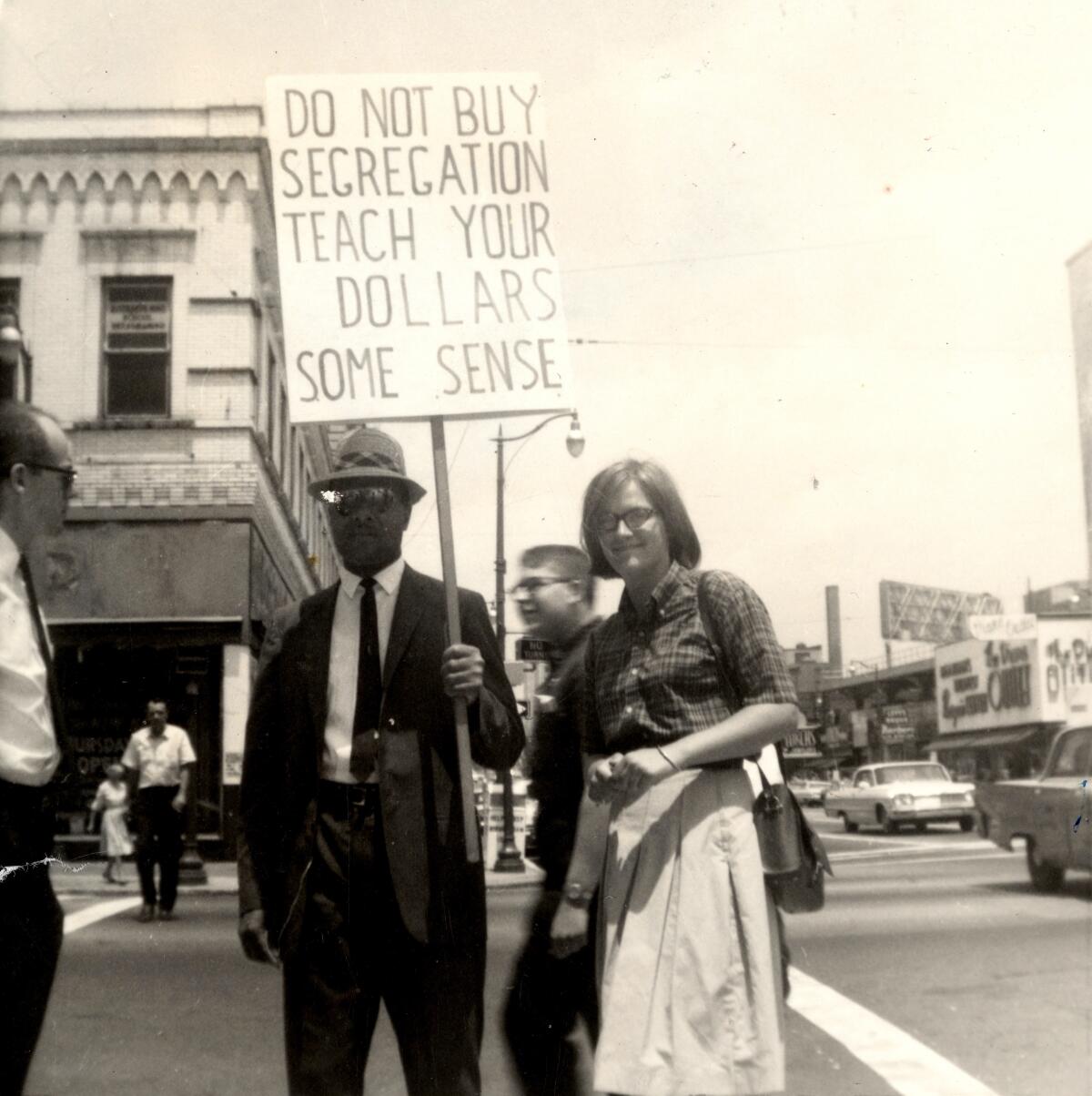
The following year, 1964, in the same week three civil rights workers were murdered in Mississippi, she joined a multiracial set of students on a Quaker-sponsored trip to Virginia, participating in Black protests and voter education efforts. “No one openly voiced fears or second thoughts,” she writes. “Instead, the sense of risk and danger drew us closer.” This was the beginning of an engagement in activism that would culminate with her joining the 1965 Montgomery March and carry her through the darkest days of the Vietnam War.
Faust’s gift to this narrative is her knowledge of American history. She slots the signposts of her own life effortlessly into the how and why of the convulsions that shook the 1960s. She has a bone-dry sense of humor and is well aware of the irony of learning activism at institutions struggling with their own racist heritage. At Bryn Mawr, there were no courses on Black history or women’s history, and the contemplative life was enabled by a company of Black servants.
A.J. Baime sought to remedy a great civil rights leader’s erasure in “White Lies: The Double Life of Walter F. White and America’s Darkest Secret.”
At the same time, Faust maintains a distance that leaves the reader wanting more. Once she leaves home, her tormented but fascinating family recedes into the background, and her vivid portrait of her parents sets up a longing for resolution that is never fulfilled. How did they view her blossoming activism? Did they know she was risking her life agitating for civil rights a few miles away? Was there ever a reckoning?
“Necessary Trouble” ends in 1968, a hard year for America and the year of Faust’s college graduation. I, for one, would love to read about her next chapter — how she became a historian, how she excelled in academia and how, as a committed activist, she became the head of an institution that many see as a metonym for privilege. Her accounting of herself is well told but incomplete. We can only hope that, at some point, she will tell the rest of the story.
Gwinn, a Pulitzer Prize-winning journalist who lives in Seattle, writes about books and authors.
More to Read
Sign up for our Book Club newsletter
Get the latest news, events and more from the Los Angeles Times Book Club, and help us get L.A. reading and talking.
You may occasionally receive promotional content from the Los Angeles Times.
